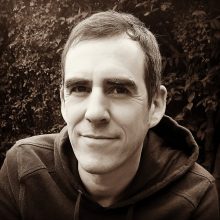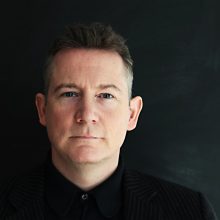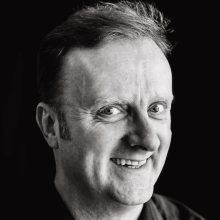The Inheritance of Solomon Farthing by Mary Paulson-Ellis
What led you into writing?
I was a massive reader as a child, an obsessive borrower from the library, so it starts from there really. I enjoyed writing stories when I was young, but as I got older I was very hampered by the idea that writers were somehow ‘other’ than the rest of us and it didn’t occur to me that I could be one too until I found myself scribbling bits and pieces in my late twenties.
Then, when I turned thirty, my partner and I asked ourselves this question: what do we want to be doing in twenty years time. The answer was painting and writing, so we set out on that path, more in hope more than expectation. Twenty years on we both do it full time. Whenever I think back to the first evening class I took – Write That Story! – I still can’t believe I make a living from doing precisely that now.
How does a typical day look?
Useless in the morning i.e. lying in bed with the duvet at my chin wishing I didn’t have to get up, then staying in bed with the duvet at my chin drinking a cup of green tea. Eventually I rise from the sheets to do all sorts of admin type activities, a plague of which seem to follow the professional author around. (Plus all sorts of other life stuff that sometimes take over the whole day.) Then I prevaricate some more by eating lunch and scrolling the internet and sometimes even reading a book. Finally I open the computer and start to write – from about 3pm. After that I can go till the moon is up if I have the chance, maybe even the sun. It took me years to realise that however much I tried to force myself, I was never going to write anything good in the mornings or even anything at all.
In what ways do your characters test your abilities?
Every way! Characters are where it all starts for me, thinking about who they are and what they are about. At the beginning I have to get their names right to be able to progress – that really matters to me. I also have to be able to ‘hear’ them in my head, as though they are holding conversations and I am eavesdropping. I often struggle to make them do things, which usually means I don’t really know them well enough to progress the plot. With my second novel, The Inheritance of Solomon Farthing I spent months writing a plan only to discover that my characters refused to co-operate with it. Now I write loads of exploratory stuff first to try and bring them to life, then attempt to impose order on them later if I can.
What’s your setup?

I live in a small flat and working from home didn’t suit me at all – particularly being such a night owl when my partner is more of a 9-5. So for the last few years I’ve rented a studio space in the attic of a building owned by the Spiritualist Church in Edinburgh. This suits me immensely, being both quiet and very busy with the souls of those who’ve gone before.
Needless to say, rather like my books, it is full of stuff now: a fox fur given as a gift; a stuffed stoat that featured in my first novel. The No Guts No Glory banner on my desk was a birthday present from my sister when I was struggling to complete the edits on my second book. Sometimes I hang it in the window for inspiration. The space is, of course, a huge luxury. But then, as my partner says, what else does a writer need to invest in other than some paper, a pen and a room of one’s own.
What lasting effects have your favourite authors had on your writing and style?
I’ve been very influenced by Kate Atkinson and her genre-hopping novels, particularly her Jackson Brodie ‘crime’ series beginning with Case Histories. I love that in these books her detective doesn’t so much solve crime as come to a greater understanding of human nature, with all its tragedies and joys. So I learned from her that it was OK to write something that was a sort of hybrid – a literary detective novel crossed with a family drama – and to let it be its own thing. Atkinson is also an expert at time-shifting, non-linear narratives which are something I instinctively write myself. So I often re-visit her novels to remind myself how it can be done. Other than that a really well turned out sentence matters to me a lot and I put that down to my abiding love of authors such as Ali Smith, Maggie O’Farrell and Toni Morrison amongst many others.
What do you do for inspiration?
Read. I often re-read old friends when I’m stuck (see Kate Atkinson above). There is something about the familiarity and joy in re-reading that seems to unloose me creatively. I also like to find a book or image that somehow encapsulates whatever I am working on at the time. For, The Inheritance of Solomon Farthing it was a book of photographs, Shot At Dawn by Chloe Dewe Mathews, commissioned by 1418 NOW for the WW1 centenary. Dewe Mathews revisited the exact places, at the exact time of day, where soldiers from the British, French and Belgian armies were executed by their own side one hundred years before. The photographs she took are haunted by both the absence, and presence, of those men.
What repeating themes do you find yourself pulling into your stories?
Well, all my novels are about what I call the ‘territory of the dead’ – the world of those who die with no next of kin. I’m fascinated by the people who get involved if someone dies in that way, be that the council worker who organizes their funeral, or the heir hunter who pursues their estate. Then there is the question of who the deceased really was in life just waiting to be explored.
I’m very interested in the way that the events of the past ripple through into the present, often in a manner to which we are oblivious but which later seems inevitable once we understand the patterns playing out across our family tree. I am also intrigued by what I call the ‘murderous’ side of family life: the idea as expressed by Hilary Mantel that families are both the safest and the most dangerous places to be.
How do you wind down?
I love to watch television. I can spend hours and hours bedded down on the sofa mainlining one drama series after another. The explosion of multi-character, multi-layered, multi-episode TV is like nirvana for me. It’s even better with a glass of wine in my hand.
What sort of challenges do you regularly overcome while world-building?
There is the question of what actually happens when someone dies without any next of kin – in Edinburgh in particular which is where all my books are set. But the research involved in building that world and making it authentic isn’t a challenge so much as a thrill. I’ve got to meet some very interesting people that way. I do sometimes have to be a little slippery with the truth of what they tell me – to make it work for fiction. Then again, the grey areas of life are where all writers should aspire to be, I think.
In terms of writing the historical narratives in my books, I try not to think of them as historical worlds at first, by which I mean that for my characters the period is contemporary and so they must act accordingly. It is only later that I go back and colour things in i.e. make sure that I have my characters eating the right food, or wearing the right clothes, or traversing the correct street etc. I do enjoy that part of attempting to get the world right.
What are you reading at the moment?
I have just started re-reading a Daphne du Maurier novel called, The House on the Strand about a pair of friends who take an experimental drug and find themselves travelling back in time to witness murder and intrigue in the middle ages. It’s research for a paper I’m giving in the summer. But the book (and time-slip narratives in general) was a passion of my youth, so it is all about nostalgia really and being seventeen again.
What’s the most useful advice you could give to an aspiring author?
Apart from actually writing, rather than thinking about writing…
Work out your circadian rhythm and organise your life so you can write when you are most awake – be that 1am or 1pm. You’ll be amazed at how much you can achieve when the timing is just right, even if you only have 20-30 minutes.
Other than that, keep writing until you get to an end however messy and awful it seems. It will be much easier to go back and start again once you’ve got a ‘whole’ thing to work with. Confidence building is all.
Tell us about the book you’re promoting.
The Inheritance of Solomon Farthing is all about men and boys and the legacies that flow between them – be that love, shame, money or misunderstanding.
In common with my first novel, it features two parallel narratives: one set in present day Edinburgh where we follow a down-on-his-luck Heir Hunter as he attempts to find a living relative for an old soldier who has died without a will; and the second set in France during the dying days of WW1 amongst a group of young recruits who are awaiting their orders to attack, or for the end to come, whichever arrives first.
The men in 1918 pass the time by gambling and playing games, and it is the question of where this takes them, and why, that the Heir Hunter, Solomon Farthing must answer almost one hundred years on. I suppose it’s really about how we can never pay the debts of the present unless those of the past have been settled first.
👋 Hi! I run Author Interviews
As a new writer I found myself itching to contribute to a thriving, creative community, so I made Author Interviews and I've met loads of wonderful people in the process. You can buy my debut fantasy RINGLANDER: THE PATH AND THE WAY from Amazon.
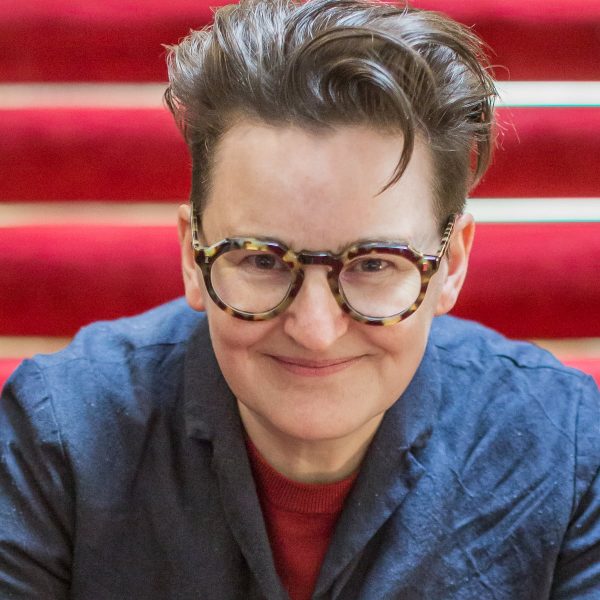
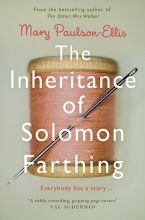
 Audible
Audible